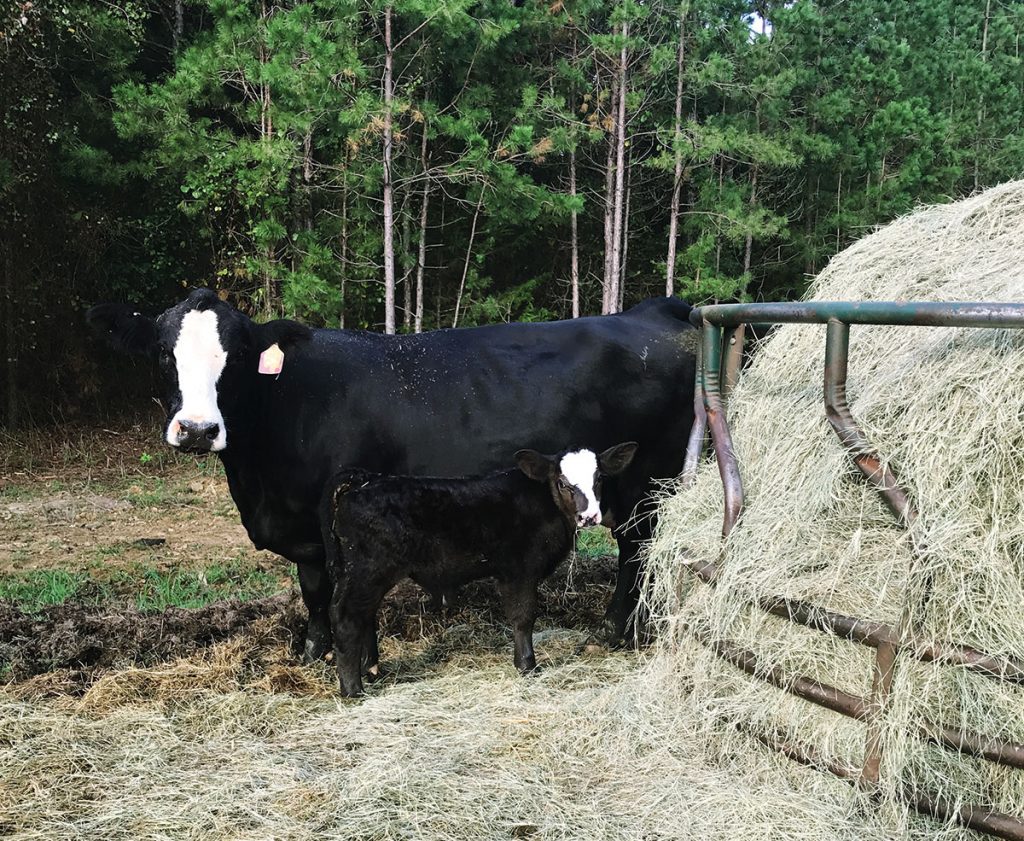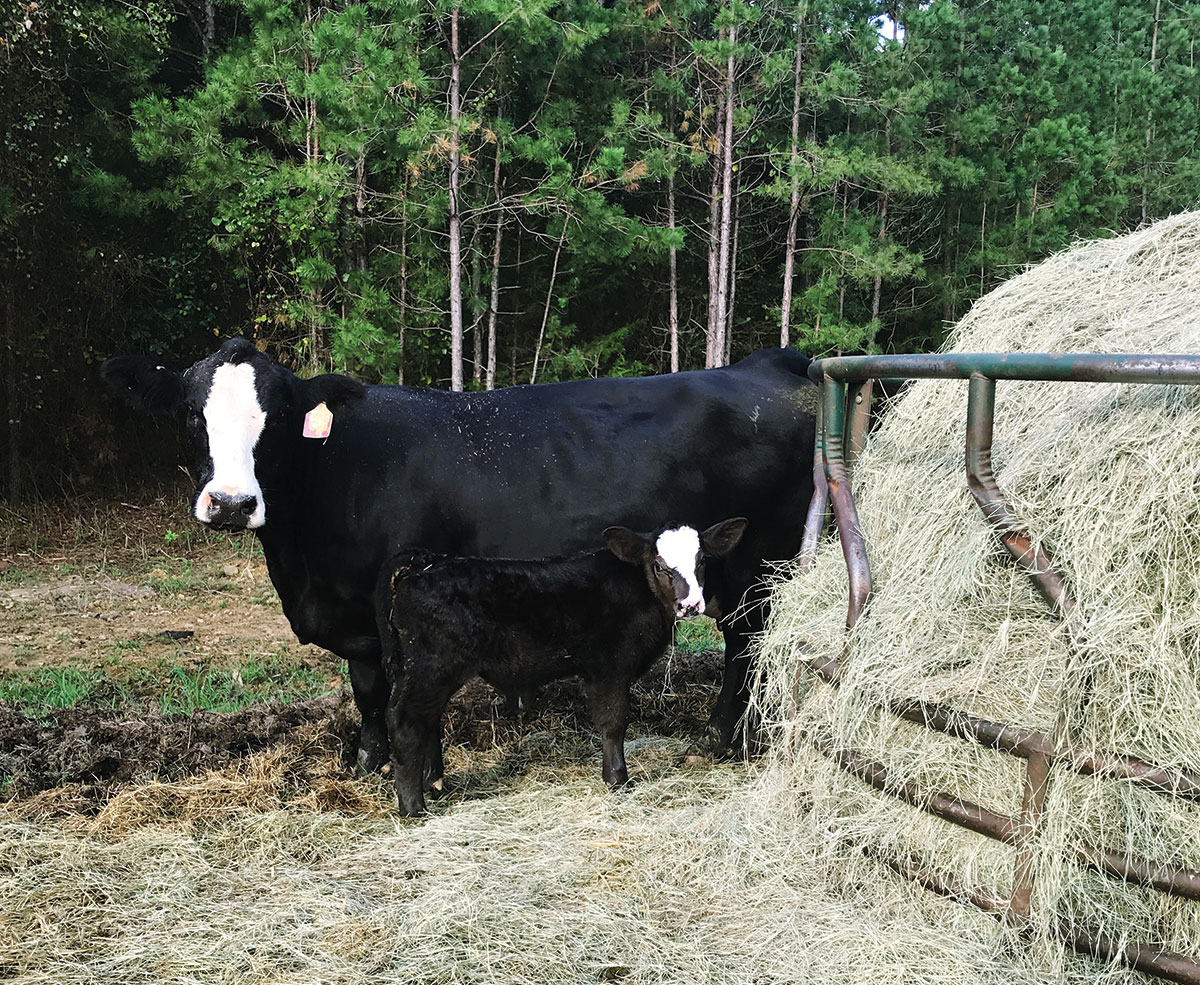
Terry and Carma Davis moved their registered cattle operation to her family’s long-neglected farm
Terry and Carma Davis moved from a well-established farm in Yellville, Ark., to Carma’s family’s homestead on land that has been in the family since the 1850s.
Carma’s great-great-grandfather, Allen Blount, purchased the land from the government before the Civil War. When Carma’s father Coy V. Blount passed in 1999, the land was divided between Carma and her two sisters, with Carma inheriting the homestead piece of 60 acres. Terry and Carma have since purchased another 20 acres with more a possibility for the future.
The couple faced a huge challenge because the land had not been used for 30 years, and was overgrown and in disrepair, which meant multitudes of thistles and black locusts, as well as dilapidated fencing and run-down outbuildings. They had less than a year to work on the place before COIVID-19 hit and slowed things down considerably.
“You should’ve seen this place before I started working here,” Terry said. “There’s still a lot to do and getting everything in optimum working order is still our biggest challenge.”
The land is divided into two pastures, one for the cows and un-weaned calves and one for the remaininder of the herd with free-choice mineral always available in each pasture.
Commercial fertilizer is applied in the spring and weeds are broadcast sprayed, but supported by spot spraying for thistles and black locust. Because of the limited amount of land, the Davises purchased quality hay locally.
Prior to moving, Terry and Carma heavily culled their registered Simmental and SimAngus breeding stock, keeping only 25 of their 75 females.
One feature that makes Nice Breeze Farm unusual is they have no bull, not even a cleanup bull, because of their AI insemination practice and experience, dating back to 1983. If females doesn’t breed back well, she is culled and replaced with a heifer from their herd. The heavy culling has paid off because some of the cows are 12 years old and still producing show- and breeding stock-quality calves.
Another distinguishing feature of the farm’s procedures is not synchronizing the herd, which means the calving seasons are longer and weaning, typically at 6 1/2 months, occurs so as not to conflict with calving.
An important part of the farm’s routines includes the cattle coming into a pen every morning, during which time they receive feed and a health check, as well as extra spraying for flies, if needed. This routine evolved from Carma’s childhood. Coy never got the son he wanted, so Carma was the stand in. At a very young age she and her father worked with the cattle every day, with her telling her father what she saw in terms of cattle health. That was a key to developing a good eye for cattle health, as well as a knowledgeable working vocabulary.
By the time Carma was in her early teens, her father trusted her with feeding by herself and repurposed a chicken house so she could safely do so. He cut holes for the cattle to put their heads through in order to reach the feed.
The Davises goal is to produce thick, productive and docile cattle. Specific qualities include a longer and tight neck, good hip structure, a well-set tail, good feet and bones, as well as good udder location combined with ample milk production.
Carma is in charge of finding semen. A few years ago, she spied a bull named W/C Bankroll. He is highly popular because his calves do so well in the show ring.
Carma usually selects semen from two bulls each year, one for the heifers and one for the mature cows. Sometimes she selects semen from a bull she has used before if the results have been exceptionally good. In addition, Carma occasionally purchases semen from a company or directly from bull owners. Though Carma usually purchases semen from homozygous bulls, she treasures her stock of W/C Bankroll’s semen even though he is heterozygous.
“I believe a really good bull meets the needs of any cow, and therefore I don’t buy semen for a specific female,” Carma explained.
The Davises sell to multiple markets. Steers are sold at sale barns. Weaned bull calves and heifers are also sold by private treaty for show and breeding purposes.
“We are stewards of God’s gifts,” Carma said. “The most important thing to us is honestly representing all of the cattle that we sell so customers know exactly what they’re getting.”
Terry and Carma are considering entering into a partnership for a bull growing program. Instead of selling their bulls so young, the partner would finish out the bull with the price of the more mature bull shared when sold.
“That’s a long-range goal, but I think Terry would really enjoy watching our bulls mature,” Carma said.







